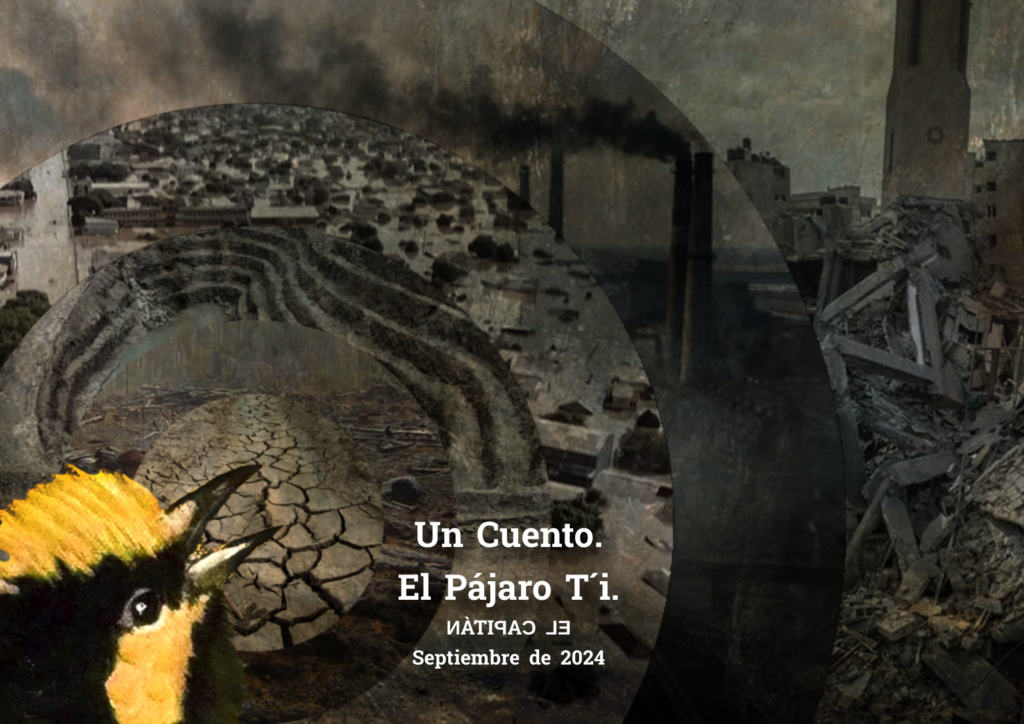
It was at pozol time. The insurgent compañeras told me about the multiple accidents, falls and forced collisions when they were learning to ride a bicycle.
The forced collisions are explainable: when they lost control of the bicycle and forgot to brake, they quickly chose where to crash in order to stop. Sometimes a tree, other times a gate to a pasture and, most often, a ditch.
I asked them why not just brake. This is how they responded to me: “I thought about it, but the bike doesn’t understand what I think. I even yell at it, but it doesn’t obey and continues to go on its way, and then my fear sets in,” explained a compañera while the health worker treated her for the scratches and wounds she got, you can imagine, when she decided to ‘stop’ against a barbed wire. Yes, it could be worse, there are plenty of caves nearby.
“But they did warn you,” another compañera tells her, “you heard the bird clearly.”
What bird? I asked.
“It is a bird that warns you that something bad can happen. It’s not that it will happen by itself, but maybe it will happen if you are not alert and prepared.”
From there ensued a discussion about the name of the bird. Some said “Tii”, others said “Titil” or “Titil Mut”. Subcommander Insurgent Moisés, who uses another variant of the Tzeltal language, said it is “T’í”.
“In Cho’ol we call him “Tyi’j”, a compañera informs me, “when we find it on the road it starts to scream, as if it were scared and quickly flies away. And that’s when they say that it is warning that something bad is going to happen”
Two mechanical insurgent compas (one with motor vehicles and the other with bicycles) explained to me: “that is to say, it alerts you, warns you, it tells you that something bad can happen. For example, there is a nauyaca, or a car is coming, or the tire is going to get a flat…”
“Or that you’re going to fall off the bike,” they add while looking at the disaster that the “radical breaking” left on their partner’s arm.
“It’s not that it’s going to happen, as they say, irremediably. But it warns you and then you see if you pay attention to it or not.”
After a multitude of anecdotes (almost all of them from their childhood), which confirmed the warnings of the bird “T’i”, they kept arguing: a compañera said that “it depends, if it does it three times and seems to be in a hurry, it means that misfortune is near and, you just have to prepare yourself.» Another: “but if it comes back and does like this (she prolongs the monosyllable of the song, “tiiii”), it means that it was a lie or that the danger has already passed.”
A few days later, before starting to practice with the bicycle, the bird sang several times. Everyone heard it, but they thought that the danger was for someone else, not for them individually.
Of course someone fell and scraped their knee.
“It’s just that you didn’t listen to the bird, of course it’s telling you that you could fall,” they claim.
“Yes, I listened to it, but I thought it’s not going to happen to me, but to you because you don’t clean the chain and it’s all rusty,” she defended herself.
-*-
Everywhere of that whole that we call “Planet Earth”, nature warns, alerts, tells that something bad can happen. The sciences and arts replicate the warning.
There are those who understand and prepare.
There are those who understand, but think that it is not going to happen to them.
There are those who understand, but tell themselves that they use a private car and not a bicycle.
And there are those who do not understand the story.
That’s all.
From the mountains of the Mexican Southeast.
The Captain.
September 2024.
Original text and translation reposted from Enlace Zapatista on September 4th, 2024.